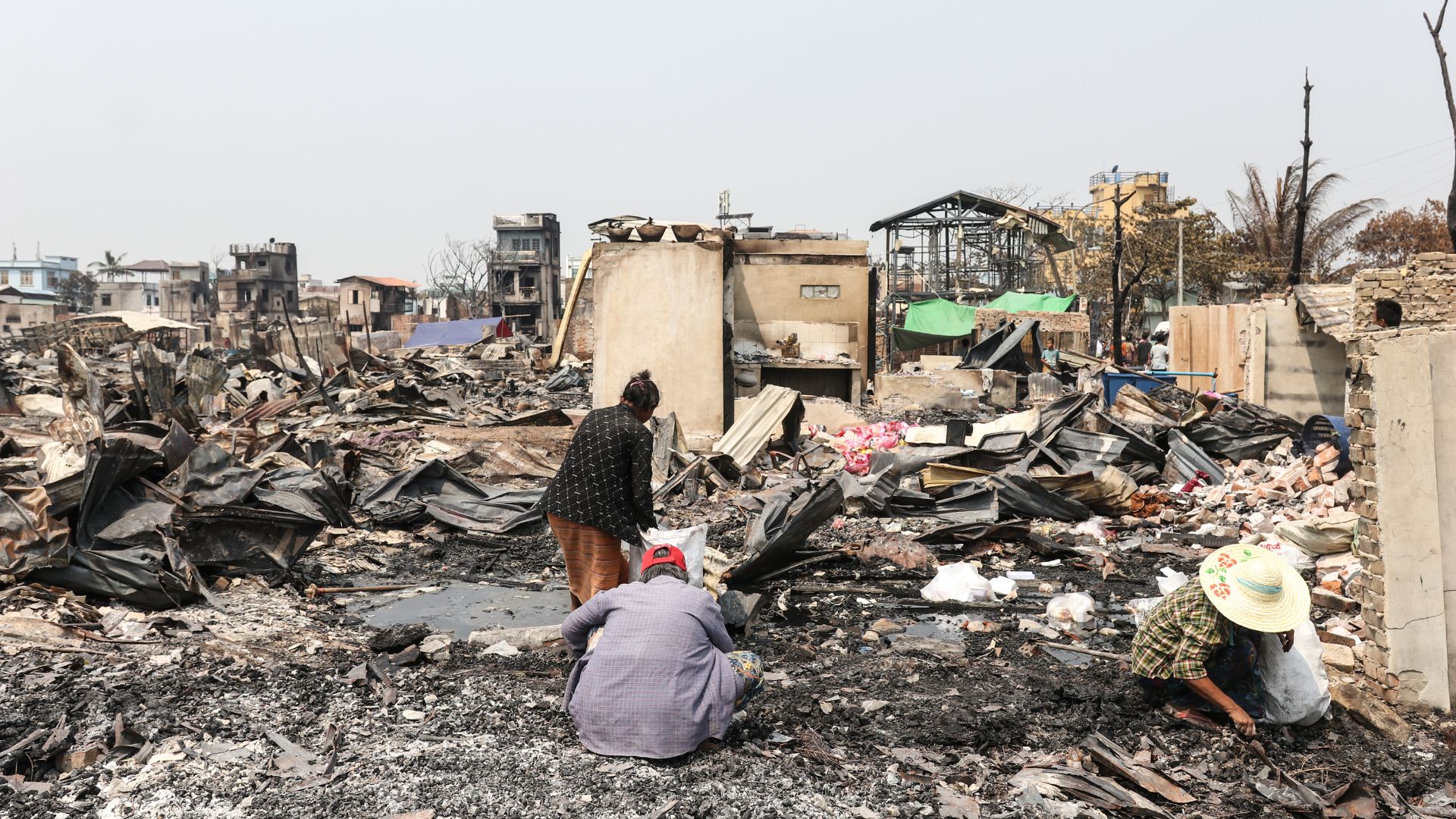Since a devastating 7.7 magnitude earthquake struck Myanmar on 28 March, the scale of destruction has been overwhelming. Over 3,000 people are confirmed dead and 22 million people are thought to be impacted – that’s almost half the population of England.
Shortly after the earthquake hit, I travelled to Mandalay as part of Plan International’s relief efforts. As soon as I arrived, I was confronted by unimaginable devastation. Entire communities have been reduced to rubble. The needs on the ground are immense. Homes, schools, hospitals, roads, water sources, and communication lines have all been badly damaged, leaving communities stranded and vulnerable.
- How Myanmar’s devastating earthquake turned the spotlight on a man-made disaster
- Why Starmer’s cuts to UK aid budget will hurt both at home and abroad
- ‘I will never forget the day it all changed’: This is what life is like as an aid worker in Gaza
Over the past few weeks, aftershocks have continued to terrify survivors. In the hardest-hit areas, people’s homes have been completely decimated. Even the buildings that remain standing are too dangerous to enter and many families now face the heartbreaking reality of sleeping outside on the street, just steps away from their former homes.
Enormous quantities of life-saving humanitarian aid are desperately needed – which is why the Disasters Emergency Committee (DEC) has launched an urgent appeal for funds to support millions of people whose lives have been devasted by this catastrophe. All money raised will provide life-saving aid and help thousands begin to recover from the damage wrought by this disaster – the scale of which is still unfolding and almost impossible to comprehend.
In one village, I stood before the remnants of what was once a place of prayer, now a flattened ruin. The chilling sight of bodies being pulled from the rubble will stay with me forever. The people I have spoken to are still processing the suddenness of this catastrophe. Young children are in shock, confused about why they’re now living on the street, asking, “Why am I outside?” and “Why can’t I go home?” Their world has been shattered.
In times of crisis, children face even greater risks. Girls, in particular, are vulnerable to exploitation, violence, being pulled out of school permanently, and to being forced into early marriage. That’s why, beyond providing necessities like food, blankets and clean drinking water, Plan International is also working to ensure that children have safe spaces to learn and play and girls have access to safe and clean sanitation facilities. Mobile toilets, especially for women and girls, are critical in maintaining dignity and protecting them from further harm.





